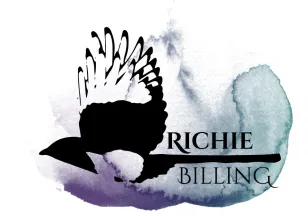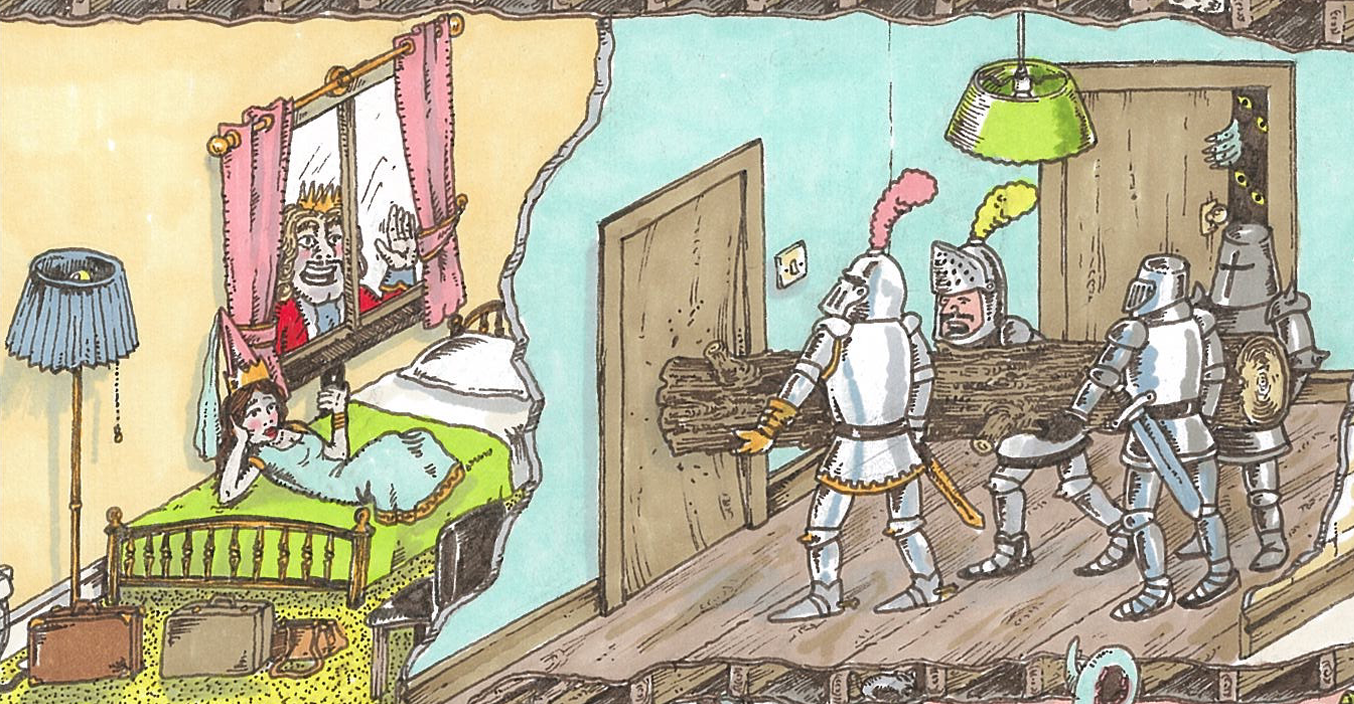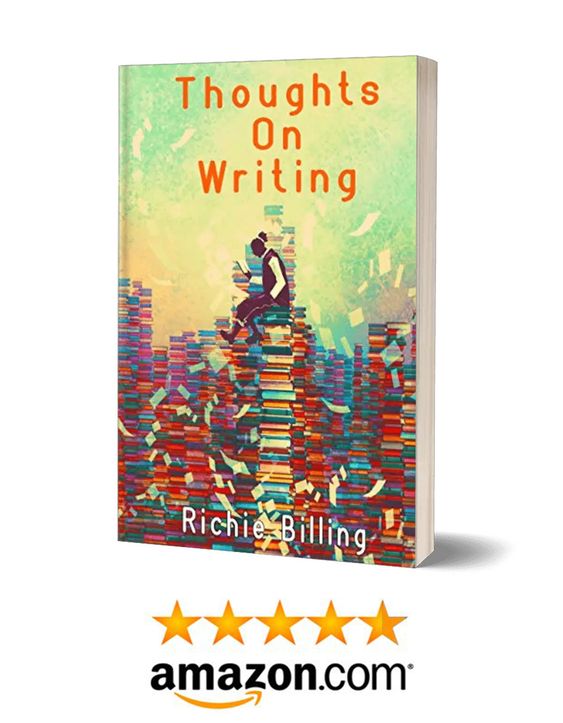A Fantasy Writers’ Handbook has been out for nearly two weeks and I’ve at last had a chance to reflect on the experience of publishing and getting it out to the world. I’ve self-published in the past, but it was more like getting my ankles wet than diving headfirst into the deep end. This time around I’ve learned a hell of a lot. In this post, I thought I’d share with you the top five things I’ve picked up.
Formatting is a pain
Save yourself hours of frustration later by setting everything up in the right format first. If you’re publishing through a specific service, spend a few minutes checking out their formatting requirements first. Kindle Direct Publishing, for instance (the one I used), has different formatting guidelines for ebooks and paperbacks.
One of the biggest frustrations for me was indenting the first line of paragraphs. For some reason, the nice long space offered up by the TAB key doesn’t translate to editing software. It’s a problem easily solved, though. In Microsoft Word, simply right click anywhere on the white page, and then click on ‘paragraph’. On the ‘indents and spacing tab’, look for the section headed ‘indentation’. Look for the drop-down menu titled ‘special’. Select ‘first line’, and there you have it. Piece of piss. You can change the size of your indentation using the arrow keys next to the dropdown. If you’re just doing this to your manuscript now, be watchful. It’ll automatically indent your paragraphs for you but will include the space made by the TAB key. I had to go through every paragraph of my 300-page book deleting that phoney TAB space. I hate it now, more than anything.
When it comes to how the finished product appears once it goes through processing, things can vary with ebooks, more so than with paperbacks. You may find some bits of formatting doesn’t transfer, often inexplicably, which only adds to the frustration. Just keep playing around with things. It’s time-consuming and tedious but it’ll all be worth it in the end. Think about your reader and their experience, put yourself in their shoes. Would you be happy buying a book with crappy formatting?
Another thing to consider, which was a particular headache for me because of my contents page, was the paper size you intend to print on. It’ll have an impact on how things appear down the line.
Manage your expectations
AFWH hit a couple of charts around launch day but quickly fell down the lists. The process of selling your book and getting the word out to the wider world is going to take time. Months, maybe even a year, or more. People have books they’re already reading, lists of them in fact, and although there are marketing methods to reach a wide audience, the net will never catch everyone. You’ve got to keep at it, a little bit at a time.
Tied to this is managing earning expectations. The royalties are piss poor on Amazon. You need serious volume to make a living from it. You’ll go through periods of frustration and despair, but don’t worry yourself. Remember, it’s a long game, it’s going to take time, and that all requires patience. Everything in this writing game takes an age, from sending out stories to publishers, query letters to agents, to getting reviews back from book reviewers. Everything takes months. Be prepared to wait. Remind yourself it’s normal, and that it isn’t you or your writing.
Do a pre-order campaign
I gave myself a 4-week pre-order campaign, but to be honest, 3 or 4 months would have been preferable. The main reason behind this is to allow time to generate reviews. Most reviewers who’ve agreed to review my book have a 2 or 3 month to be read list. Luckily, a few very kind and swift-reading folk helped me out with some lovely reviews on Goodreads, which in turn helped me sell it not only to potential readers but to other book reviewers too who may well have been a bit sceptical about investing their time in it.
It’s worth noting that you can’t leave reviews on items listed for pre-order on Amazon. So come release day, get back on your knees and beg again. Ideally, you want to get about 25 reviews on Amazon. It’s only then it’s algorithms begin to take notice of your book and feature it in recommended books and what not.
Play around with the launch day
I decided to have two launch days: an official launch day, and one for the paperback. The idea behind it was to allow people to buy their paperbacks and have it in time for the official launch, but also to allow people to leave reviews ahead of that big LD. And plus, you get two chances to plug the fuck out of your book.
On launch day itself, I did everything I could to get it out to the world. I hammered social media as much as possible, my mailing list, and one of the most effective methods was signing up for Writer of the Day on r/fantasy (which has nearly 600k members). I offered up a couple of books as giveaways for everyone who got involved and it went pretty well. Better than my first time anyway, when I went largely unnoticed.
Don’t rely on the internet for marketing
I’ve come across a few primary marketing strategies which have proven really effective in getting the word out. I did two simple things. First, I made a list of every bookshop and shops of a geeky, fantasy-related nature in my city, like Worlds Apart and Forbidden Planet. I asked them if I could leave some promotional bookmarks on the counter for people to take and if they said yes and expressed an interest I’d ask them if they’d be interested in checking out the book with a view to stocking it.
Amazon offers a very competitive price for printing author copies—almost half the price as the cheapest quote I was able to find from any local printing firms. And you can order up to 999 at a time. You can double your money selling a copy to a bookshop for a price that’ll leave them able to make a nice sum too, which makes it all the more appealing to them.
The other thing I did was draw up a list of all the local libraries and went down again with bookmarks but with a couple of copies of the book too. I asked them if they’d be interested in taking a couple copies as donations, and job’s a gooden. Obviously there’s a bit of a cost involved in doing this, but hopefully, you’ll cover it all in book sales down the line. Think of it as an investment in the success of your book.
Other approaches you can take to plugging your book in the immediate world around you is to write to local newspapers or publications asking them if they’d be interested in reviewing it. Send them a copy if you have one to spare. You could offer to do an interview about your new book or ask the publication to feature it. The same applies to local radio. Offer to go in and talk about your book. Have you ever listened to local radio? Trust me, they’re desperate for good content.
Thanks for checking out this guide on my experiences of publishing A Fantasy Writers’ Handbook!
***
Thanks for reading! If you enjoyed this article, why not stay in touch by joining my writing community? Everyone who does receives a free ebook on the craft of writing, lists of publishers of short and long fantasy fiction, a list of book reviewers and a bunch of short fiction. All you have to do is fill out the form below!
- Mastering Dialogue: The Very Best Tips - January 12, 2024
- The Proven Method Of Writing Short Story Cover Letters - November 10, 2023
- Tips, Advice And Guidance On Writing Villains And Antagonists - November 7, 2023





